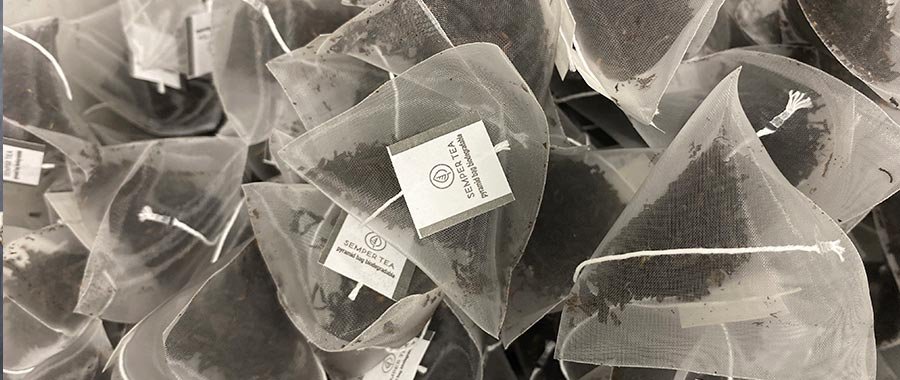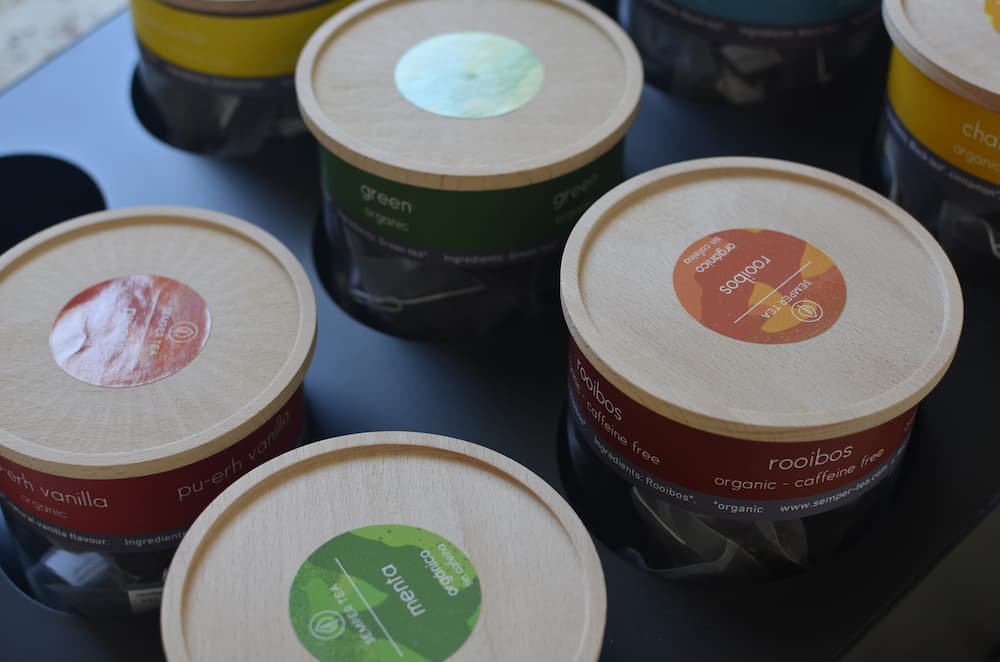All about tea, Teas in Horeca, Uncategorized, Variedades de tés
Organic tea in sustainable packaging | European standard EN 13432
In today’s world, sustainability is key. Understanding the difference between compostable and biodegradable materials is essential for making eco-friendly choices. To ensure transparency and support consumers in making informed decisions about packaging recyclability, the Ministry of Ecological Transition and Demographic Challenges has established new requirements in the recently published Royal Decree 1055/2022.
This decree mandates that packaging should indicate the percentage of material suitable for high-quality recycling. Additionally, biodegradable or compostable packaging must be certified according to the UNE-EN 13432 standard.

New Lava Tea Collection in accordance with the UNE-EN 13432 standard
Choosing environmentally friendly and sustainable products means prioritizing quality, awareness, and responsible use of natural resources. At our core, we value both product excellence and environmental compatibility.
What is compostable?
Compostability of organic materials defines their capability to transform into valuable compost through an industrial process. This multi-stage process breaks down the materials, resulting in nutrient-rich compost that enhances soil quality and enriches our planet’s ecosystem.

What is biodegradable?
Biodegradable materials can break down through the action of biological elements like bacteria, water, sunlight, and other micro-organisms. These elements degrade the material into simpler substances such as water, carbon dioxide, and biomass. Most waste we produce naturally decomposes when exposed to specific conditions over time. This process recycles nutrients and helps reduce waste accumulation in the environment.
What is the difference between biodegradable and compostable?
The distinction between biodegradable and compostable materials lies in their decomposition processes, durations, and conditions. Biodegradable materials can break down in any environment with the aid of micro-organisms. In contrast, compostable materials require human intervention or industrial facilities to decompose and transform efficiently within a shorter timeframe.

Semper Tea pyramid tea – biodegradable and compostable
Opting for sustainability by choosing eco-friendly, biodegradable, and compostable products helps to reduce our carbon footprint and minimize waste. At Semper Tea, our main goal is to eliminate plastic materials in packaging and utilize sustainable components.
Our pyramid tea bags are crafted from plant-based PLA (Polylactic Acid), derived from renewable materials like corn, beets, wheat, and other starch-rich sources. This ensures that our tea pyramids are both biodegradable and compostable, making them free from plastic and harmful pollutants.
LAVA – loose leaf tea line in bulk or pyramid bags
Our LAVA tea line offers organic tea in bulk or in a pyramid bag, ideal for both private consumers and the catering trade.
- In bulk: Organic whole leaf and flower tea, available in various sizes up to 1 kg, offers freshness and an unrivalled aroma in every cup.
- In pyramid: Organic tea in bulk pyramids, complying with the UNE EN 13432 standard, which ensures that this line of tea is completely compostable and biodegradable.

Stylish and sustainable presentation
Our LAVA tea line can be presented in elegant glass and display jars. The jars can be filled with bulk tea or tea pyramids and offer a sustainable and environmentally friendly option. An elegant and eye-catching solution for any hotel, buffet, restaurant or cafe. You may be interested to read: Sustainability and Customer Experience: The key to success in the hospitality industry
Conscious consumption and 100% natural
Enjoy an organic, aromatic and natural cup of tea and at the same time know that it leaves no plastic or chemical residues. At Semper Tea, we are committed to finding alternative and new sustainable packaging solutions. It has always been our priority to reduce our ecological footprint as much as possible. Discover our different organic tea lines in different formats and plastic-free packaging.



 Español
Español Deutsch
Deutsch Français
Français

